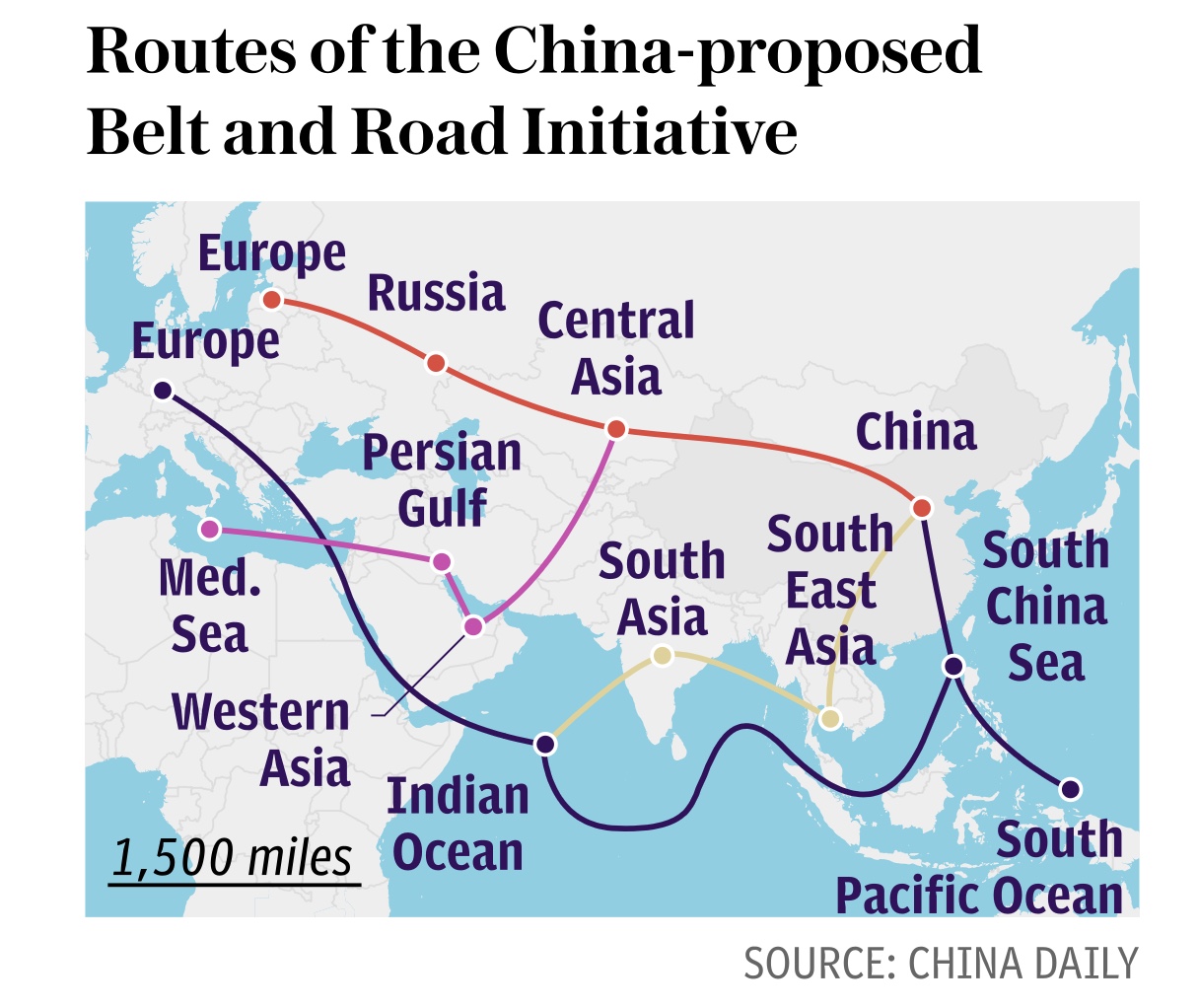Syria Reaches Out To Join China’s Belt & Road Initiative
Syria, desperate for reconstruction capital following a devastating 8 year civil war, has approached Beijing about joining with the Belt & Road Initiative. The conflict has laid waste to entire cities and destroyed the country’s critical infrastructure, including the destruction of nearly a quarter of its housing stock. The United Nations has estimated the cost of damage to Syria at more than US$388 billion, and the cost of lost productivity to GDP at around US$268 billion.
The country’s GDP has declined by more than 70% since 2010, according to the CIA’s World Factbook, and the unemployment rate is around 50%. The government’s budget decreased to around US$1.162 billion in 2017 compared to US$16.4 billion in 2010.
In a conflict that saw both the United States and EU insist the Syrian leader, Bashar Al-Assad be removed from power, the Syrian government, which under Al-Assad and with assistance from Russia remains in power, needs to look to the East for assistance. Neither the US or the EU are likely to offer any aid or reconstruction efforts in a conflict that has been deeply divisive and killed close to 600,000. Syria’s oil fields, which in pre-conflict times pumped about 385,000 barrels of oil a day, are now under the control of the US military. Yet aid for Syrian reconstruction will not be coming from either the US or EU as long as Al-Bassar remains in situ.
Al-Assad has instead been holding talk with Beijing, as he looks to the East to rebuild Syria, and as Beijing looks to extend its influence. Assad said he has proposed a number of projects to Beijing in the hope of securing investment for reconstruction in the war-torn country, stating “There are mutual interests: it is beneficial to China, Syria and all the countries on this Road.”
Beijing, which like Moscow has backed Assad’s government against the opposition, has since become the largest source of foreign investment in the region, signing deals with Egypt, Qatar and Saudi Arabia, among others. Syria was invited for the first time to attend a summit on the Initiative in April. “We have proposed around six projects to the Chinese government in line with the Belt and Road methodology and we are waiting to hear which project, or projects, is in line with their thinking,” Assad said in an interview published on Monday. “I think when this infrastructure is developed, with time, the Silk Road (Belt and Road Initiative) passing through Syria becomes a foregone conclusion, because it is not a road you only draw on a map.”
The EU – the world’s largest aid donor – has warned it will only provide support for Syria’s reconstruction only once a credible “political transition away from Assad (is) firmly under way.”
The US also imposed sanctions on Damascus and issued a global advisory warning that individuals and entities in the shipping industry seeking to do business with the regime would be in violation of them.
Assad has so far relied on his inner circle of businessmen and allies, but their contributions have fallen far short. Iran and Russia, Damascus’ main allies, have offered financial aid in return for resources and permanent military presence in the country.
Damascus has been trying to encourage some of the six million Syrians who fled the war to return home, but reconstruction would have to begin in order to accommodate them.
Reconstruction will also mean evaluation of control of Syrian oil reserves, which have been fractured between US backed elements, the Kurds, and Damascus. With Syria currently reliant upon Iranian imports, also under sanctions from the US, Beijing will have to negotiate with extreme care to maintain a scenario where it can lend reconstruction assistance yet balance the cost risk of that against securing Syrian oil reserves to pay for it. Moscow will also be involved, as it will need to provide military support and will require payment for this as well. Turkey will be waiting in the wings to pick up any pieces of Syrian territory it can under the auspices of fighting Kurdish terrorists.
Getting involved in Syria will not be an easy task for Beijing. Yet who else can rebuild the infrastructure?
Related Reading
- US is Risking a Military Clash with China and Russia over Belt and Road Investments
- Turkeys Pivotal Role in China’s Belt and Road Initiative with Europe, Central Asia, and the Middle East
- Russia, Iran, and Turkey Establish Foreign Trade Action Plan to Cease US Dollar Trade
About Us
Silk Road Briefing is written by Dezan Shira & Associates. The firm provides strategic analysis, legal, tax and operational advisory services across Eurasia and has done since 1992. We maintain 28 offices throughout the region and assist foreign governments and MNC’s develop regional strategies in addition to foreign investment advice for investors throughout Asia. Please contact us at asia@dezshira.com or visit us at www.dezshira.com






